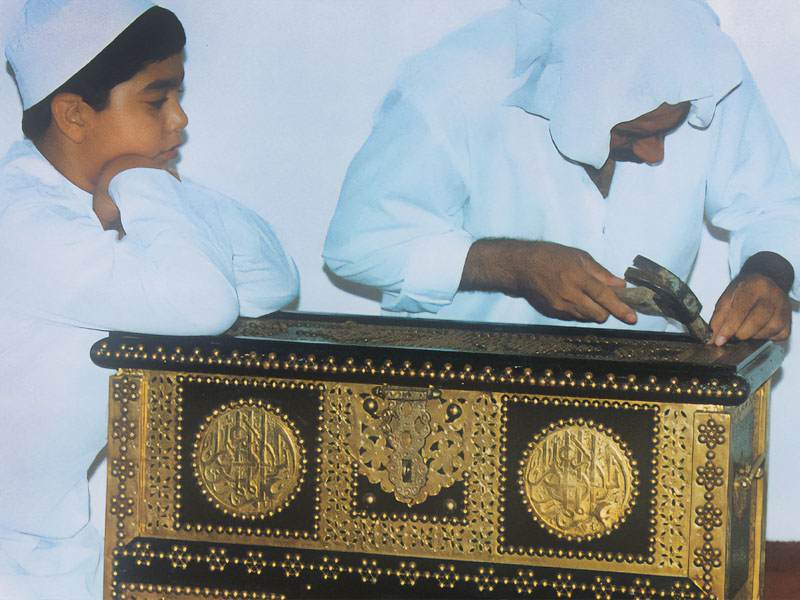Trends and methods of fieldwork when studying folk material culture
Issue 35

Yousif Hasan Madani
Sudan
The study of material culture is the study of manual production, which includes handicrafts such as turning, tanning, blacksmithing, goldsmithing, silver manufacturing, cosmetics, textiles, fashion, farming, hunting, grazing and architecture. All crafts should be studied within the context of the environmental, (i.e. social, economic, political and historical), factors that control the production and use of the tools.

We cannot separate material culture and non-material culture, and we cannot consider material culture as a separate entity, because this would be confusing and misleading.
We have to look at material culture as a living contemporary subject associated with its makers, their customs and their understanding of the oral culture around them.
We need to link people’s activities to their social, economic, political and historical contexts. For example, weddings are part of the human lifecycle. If we wish to study weddings, we must study the clothing, cosmetics, fragrances and other material components as well as the relevant beliefs, practices and customs.
When we study a craft, we must focus on the physical products and the manufacturing process, but we must also take into account all the beliefs, customs and work songs associated with this craft. It is also important to note the terminology related to each craft, the names of the product’s parts, and the names of the tools used.
When studying material culture, the primary source is fieldwork, but important secondary sources include:
1. The writings and works of classical historians such as Herodotus, Pliny and Strabo
2. The writings of Arab historians such as Al Masudi and Yaqut Al Hamwi
3. The writings and works of European explorers such as Jean Louis Burckhardt
4. The works of Arab explorers such as Ibn Battuta
5. The writings of Arab and other historians in the modern and contemporary periods
We review secondary sources before conducting the fieldwork, which is the backbone of the study of material culture.







































































